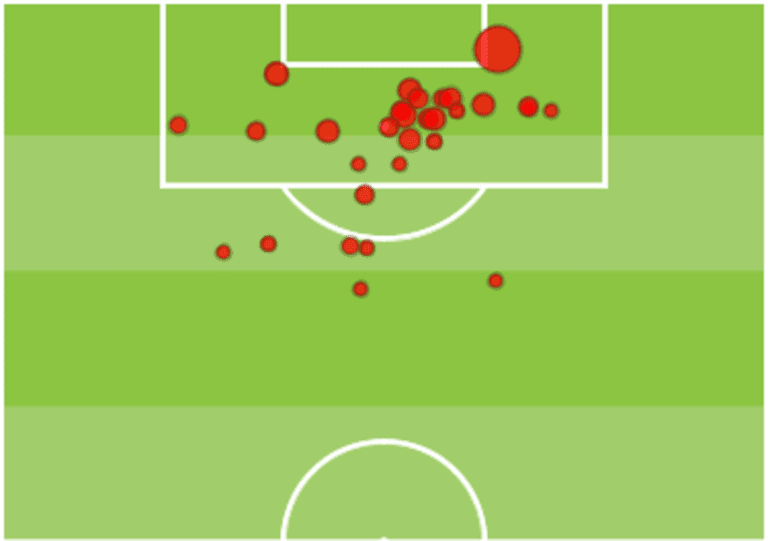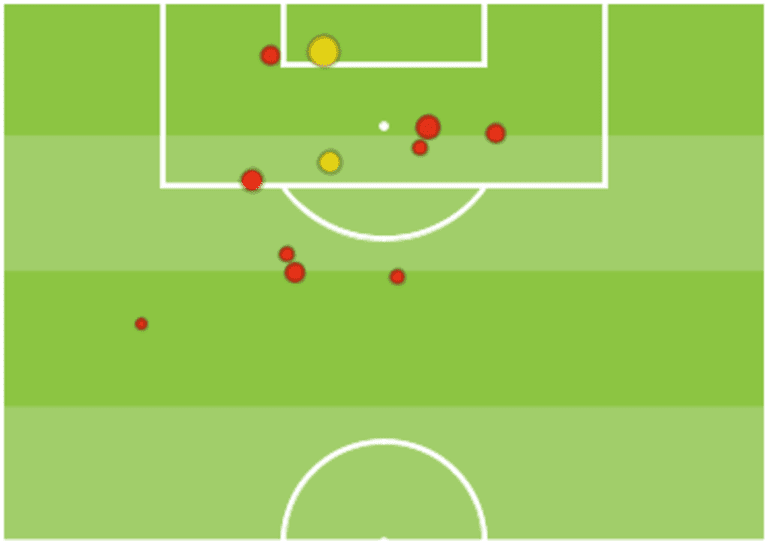The New York Red Bulls, on Tuesday night in Tijuana, did something no MLS team has done before: They beat a Liga MX team in Mexico in the knockout round of the CCL. And they doubled up on the "never done before" part by becoming the first MLS team to win by multiple goals.
MLS teams are now 3-38-8 in Mexico. The prior two wins came during a one-week stretch in August of 2011, with first FC Dallas (shoutout to my colleague Bobby Warshaw) and then the Seattle Sounders posting 1-0 wins over Pumas UNAM and Monterrey, respectively.
So this is progress. It's taken a while to get here, and it's not guaranteed the next step will be soon or significant.
Without breaking down the on-field play much itself beyond saying it was choppy and frenetic and I really hope RBNY, at some point, develop a "let's just put our foot on the ball and knock it around a little bit" gene, we can dig into the numbers somewhat and understand what really shaped the overall strategic – if not necessarily tactical – arc of the 2-0 win over Xolos.
First: Tijuana clearly won the expected goals battle. Per Opta the final number was 1.85 to .64 in favor of the hosts. Here's what the shot maps looked like:
TIJUANA - 1.85

RBNY - .64

Single-game sample sizes with expected goals are a little dangerous, but in this case it paints a fairly accurate picture: Xolos generated a ton of shots, most of them weren't great, and Luis Robles had an exceptional night. So did Bradley Wright-Phillips on the other end, clinically finishing his two quality looks. Add in the benefit of a Concacaf'y offside flag on what clearly should've been an equalizer for the hosts, and there you go. The team that lost the xG battle won the war.
This happens all the time in the world of soccer, mind you. Here are the xG totals just from this past MLS weekend:
- TOR-CLB (0-2): .99-1.30
- HOU-ATL (4-0): 2.19-1.75
- PHI-NE (2-0): 3.98-.88
- ORL-DC (1-1): 1.16-1.91
- DAL-RSL (1-1): 1.35-.46
- SJ-MIN (3-2): 1.89-1.13
- SEA-LAFC (0-1): 1.74-.28
- VAN-MTL (2-1): 1.24-.99
- SKC-NYC (0-2): 1.49-1.42
- LA-POR (2-1): 2.48-1.17
Notice the LAFC number? It's an outlier in the group, but only for now. And it's instructive, in that both LAFC and RBNY were protecting early leads on the road. They got their goal, did what they could to close up shop, attacked only opportunistically in the second half, and rode a hot goalkeeper to a landmark victory.
This approach tends to skew xG numbers, as well as our own recollection of games due to both recency bias and highlight bias.
With that in mind, here are the xG numbers of RBNY's win broken down by half:
1st Half:
- NYRB – 0.52
- Tijuana – 0.55
2nd Half:
- NYRB – 0.12
- Tijuana – 1.3
The operative term here is called "game state." It's a term popular in the analytics community, and one I wrote about after the US lost to Belgium three-and-a-half years back. Here, I'm gonna plagiarize myself:
"Game state" means – broadly – what the score of the game is, and how it affects how the two teams play.
In other words, the US played much differently down 1-0 against Portugal than they did when up 2-1 vs. the same. And we played much differently down 1-0 vs. Germany in the group stage – an acceptable result that was likely to seal our advancement – than we did when down 1-0 to Belgium in today's game.
Which is to say that the game state really is the best framework to understand RBNY's win. They got up early, played an even first half, got opportunistic in the second, and held on for dear life from about the 48th through 80th minutes (before a very good final 10 minutes and stoppage).
This doesn't mean Tijuana's second-half dominance should be dismissed; rather, understand that it didn't happen in a vacuum. Xolos – currently the best defensive team in Liga MX, mind you – were probably the better team on the night and by the numbers, but the Red Bulls were the better team when and where it counted.
Now the trick is to do the same thing in Leg 2 on Tuesday (8 pm ET; UDN, go90).












